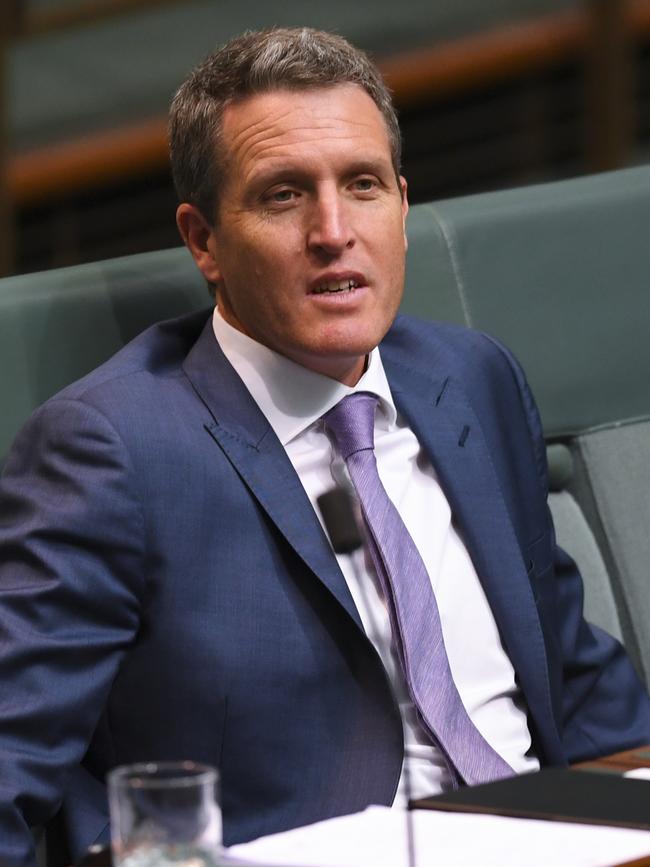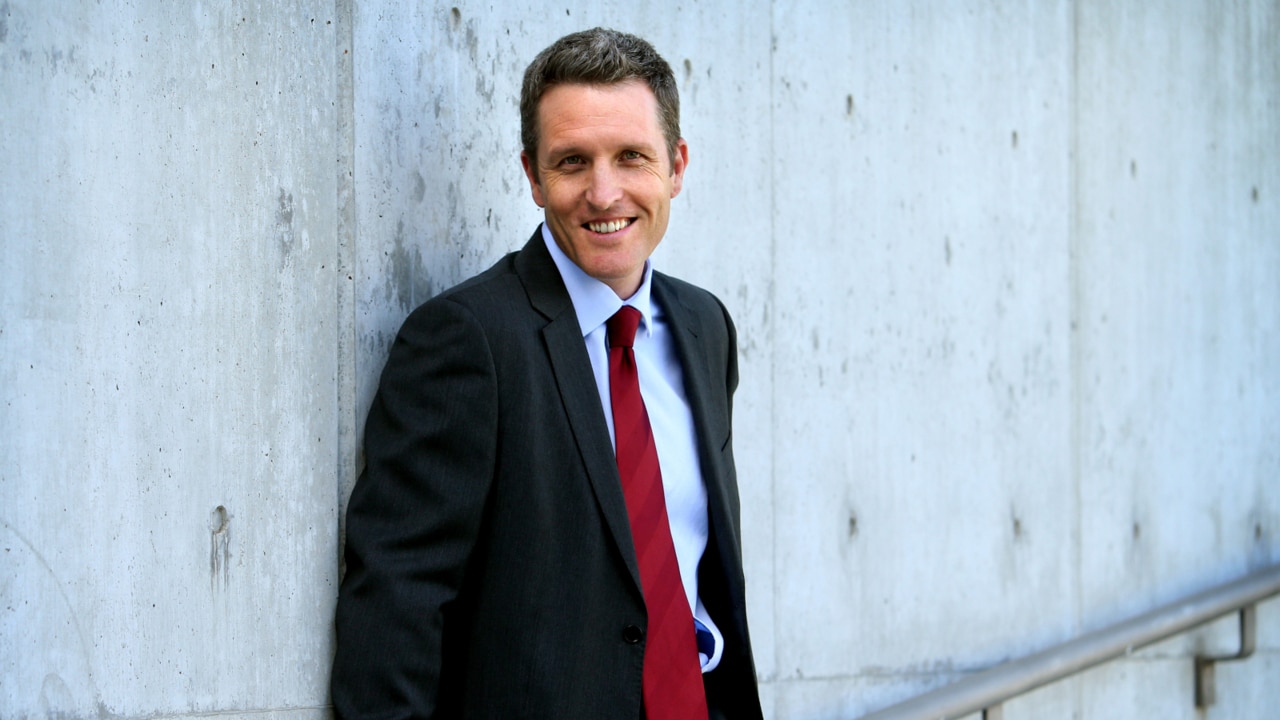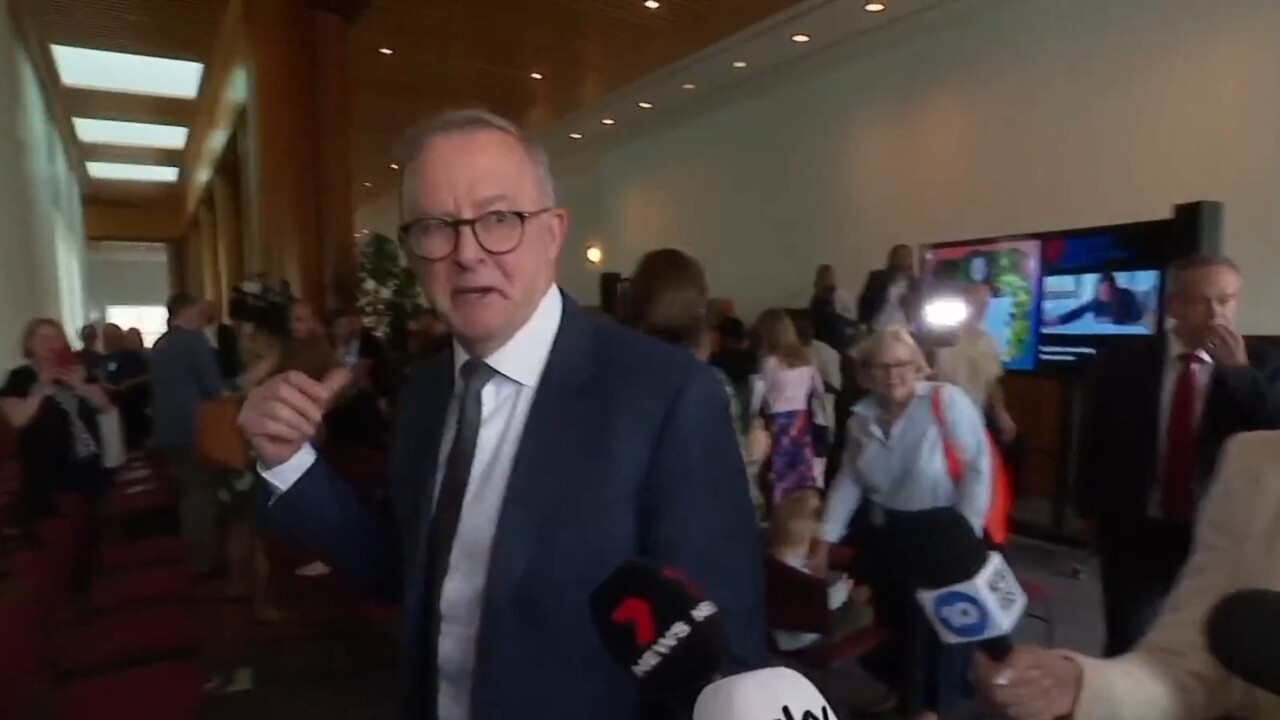Teals query cost as Labor doubts surface on AUKUS nuclear submarines
Teal independents and senator David Pocock have raised concerns at the $368bn cost of the AUKUS submarines, after Labor MPs questioned parts of the deal.

Teal independents and balance-of-power senator David Pocock have raised concerns at the $368bn cost of the AUKUS submarine plan, after backbench Labor MPs also questioned parts of the deal.
The teal independents and Senator Pocock want assurances AUKUS will not eat into spending on frontline services or hinder the nation’s clean energy transition.
Labor MPs have also begun to query aspects of the agreement, with WA MP Josh Wilson challenging the government’s view that nuclear submarines best serve Australia’s strategic needs.

Mr Wilson, whose Fremantle electorate was targeted by hundreds of Greens volunteers on the weekend, asked how nuclear waste would be safely stored and warned the deal could undermine the nuclear non-proliferation treaty. In caucus on Tuesday, Labor MPs Michelle Ananda-Rajah and Libby Coker raised questions about how the submarine acquisition would be funded and where the workers would come from. While the two MPs later clarified that they were supportive of the AUKUS arrangements, the Coalition seized on the first signs of division within the Labor caucus over the submarine plan, with opposition defence spokesman Andrew Hastie calling on the Prime Minister to “unify his party”.
The teal independents have been granted government briefings on the submarine plan but are concerned there is insufficient public debate over its risks and any threats to Australian sovereignty over defence operations.
Senator Pocock told The Australian he was “hearing concerns from people in my community about the AUKUS deal”.
“They’re asking questions about how this improves our national security in the short-term and why this huge financial commitment is happening while Australians are doing it tough across the country and the government is talking about all the things we can’t afford,” he said.
“I’ve had an initial briefing on the AUKUS deal from the government and there’s another coming up this week.”

Goldstein MP Zoe Daniel said she backed defence spending but would be concerned if the money committed to AUKUS “led to slashed spending on other areas of priority, notably the climate transition, housing, health and aged care and the NDIS”. “I am still receiving briefings from the Defence Minister (Richard Marles) and the ADF in which I am seeking detailed explanations of the rationale for these AUKUS commitments which will fundamentally alter our defence posture,” Ms Daniel said.
“Constituents have been in touch ... expressing concern that this major shift in Australia’s strategic approach has been taken without confiding extensively with the public. On their behalf, I will be seeking to understand whether such an unequivocal and long-term alignment with the US is in Australia’s best interest.”
Allegra Spender, the independent MP for Wentworth in Sydney’s east, said nuclear submarines had “significant advantages” but AUKUS was the “largest single commitment ever made to develop our defence capabilities”.
“Its ambitious scale and vision are matched by its complexity, cost and risk,” she said. “I share the concerns of the former head of DFAT Peter Varghese that this momentous decision has been made without a detailed public discussion of its rationale and the alternative options. It is critical that Australia maintains its sovereignty over defence operations.”

Mackellar MP Sophie Scamps said: “The AUKUS agreement enjoys bipartisan support. The Albanese government does, however, need to explain to the Australian people how it intends to pay for this program, while they should also rule out Peter Dutton’s plan of cutting the NDIS to pay for the submarines.”
North Sydney MP Kylea Tink said she accepted “the strategic reality that a high-performing and well-equipped navy is important to ensuring our sovereignty”. “I am concerned that despite the Labor Party having committed to signing Australia up to the UN Treaty on the Prohibition of Nuclear Weapons, this government is yet to do that,” Ms Tink said. Kooyong MP Monique Ryan said the expansion of the submarine program was “complex and includes many moving parts, including a need for ongoing trilateral commitment to this challenging initiative over three decades”.
In parliament on Monday, Mr Wilson said he was “not completely convinced that nuclear-propelled submarines are the only or best answer to our strategic needs” and was concerned about nuclear waste.
ADDITIONAL REPORTING: SARAH ISON
More Coverage








To join the conversation, please log in. Don't have an account? Register
Join the conversation, you are commenting as Logout